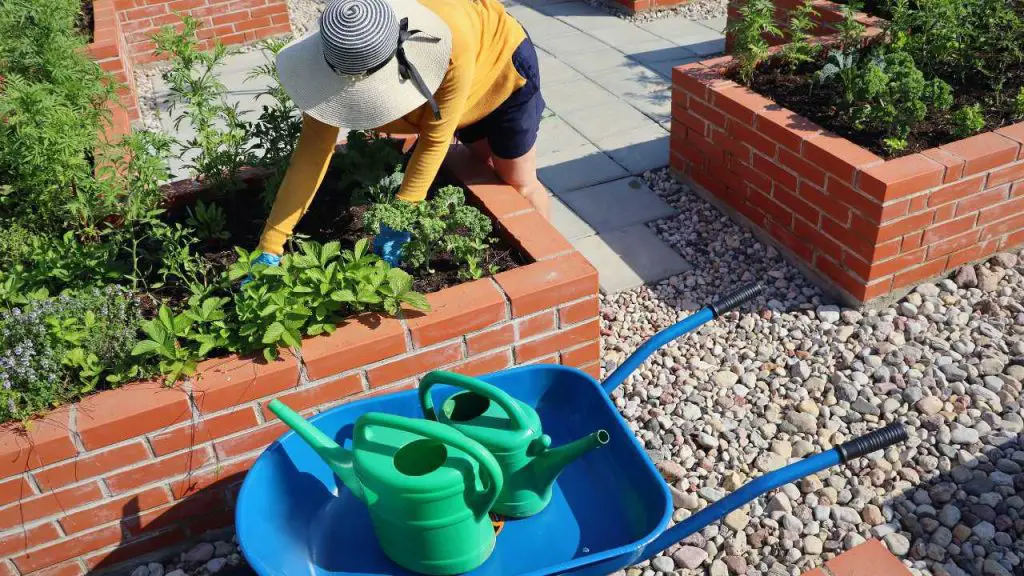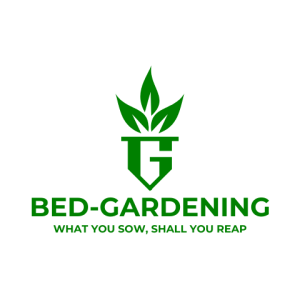When it comes to creating a prosperous raised bed vegetable garden, the choice of fertiliser can have a big impact on both the health of your plants and the amount of produce they provide.
When searching for the optimal fertiliser, it is necessary to take a number of aspects into consideration, including the specific requirements of your plants, the make-up of the soil, and environmental circumstances.

There is a wide range of options available in the world of fertilisers to boost the growth and vitality of your vegetable garden. These possibilities range from organic to synthetic.
It is important to consider a number of aspects when selecting the finest fertiliser for a raised bed vegetable garden. These aspects include the quality of the soil, the kinds of vegetables that you will be growing, and whether you prefer organic or synthetic choices. Here are some options that are frequently selected:
1. DIG INTO THE COMPOST.
Compost is readily available for use in vegetable gardens and can be purchased, but the realisation of the desire of using one’s own home-made compost is the goal of every vegetable gardener. The decomposition of a wide variety of garden materials, such as leaves, plant debris, vegetable scraps, organic kitchen waste, or grass clippings from mowing a lawn, is the process that produces high-quality compost. Compost can be made from a wide range of garden materials.
Compost contains all of the essential elements that are necessary for the robust development of vegetables and slowly delivers these nutrients to the plants over an extended period of time.
Additionally, the material is beneficial to the structure of the soil and the retention of water. It is possible to incorporate compost into the soil or apply it on top of the soil as a mulch.
It is advised that a vegetable garden be mulched on a yearly basis. It is also often used as part of the no dig gardening technique, where it is spread on the surface of a vegetable garden.
2. WORM CASTINGS
The term “worm castings” (sometimes written as “earthworm castings”) refers to an additional product that is frequently sold in the section of the store that is dedicated to vegetable fertiliser.
If you’re not familiar with the word, “worm castings” is simply another name for “worm poop.” Also, is there anything that could be more natural than that?
You shouldn’t allow the word “poop” deter you from making use of them. They have the appearance and texture of dirt, and they do not have any discernible odour at all.
Castings from worms have a similar effect to that of slow-release options in that they supply nutrients and help build up the soil over time.
3. MANURE
When searching for the most effective fertiliser to use in a vegetable garden, manure is a terrific alternative to consider. The decomposition of organic matter that takes place in an animal’s digestive system results in the production of a substance known as manure.
It contains a particularly high concentration of nitrogen, which is one of the nutrients that is considered to be the most critical for ensuring the proper development of plants.
Because it is not hard to come by and is typically not very expensive, manure is an excellent option for people who are working with a limited budget. As a result of its ability to enhance both the structure of the soil and its capacity to retain water, it is an excellent natural soil amendment.
If you want to encourage robust development in your vegetable garden, one of the best things you can do is to fertilise it using manure. It is a natural source of nutrients that can assist in the reforestation of the soil and supply your plants with the minerals that they need to thrive.
Additionally, it can help to enhance the structure of the soil and its ability to retain water, which ultimately results in improved drainage and a more effective use of water. In addition, it is not difficult to locate and it is not expensive, making it an excellent option for gardeners who are working with a limited budget.
Any vegetable garden would benefit greatly from the addition of manure. It is a natural supply of nitrogen, which can assist in the establishment of healthy plants and in the reforestation of the soil. It is also very easy to find and affordable, making it an excellent alternative for gardeners who are working within a limited financial constraints. Additionally, it helps to enhance soil structure as well as water retention, which ultimately leads to improved drainage.
4. BLOOD MEAL
When it comes to fertilising vegetable crops, blood meal is a fantastic option to consider. Because it is a natural supply of nitrogen, it encourages the rapid and robust growth of vegetables, which in turn leads to increased crop yields.
Additionally beneficial to the soil structure, blood meal promotes robust root development and assists in the soil’s ability to hold onto water. Because of this, it is an excellent choice for vegetable gardens, since it makes it easier to guarantee that the veggies have access to all of the nutrients necessary for them to achieve their full potential.
Blood meal is simple to apply and can be mixed with compost or other organic waste, or it can be spread on the ground directly as a fertiliser. Keep in mind that blood meal is a very concentrated source of nitrogen; therefore, it should only be used in small amounts.
If there is an imbalance of nutrients in the soil as a result of using too much blood meal, the plant will not grow properly and the yield will be low.
In general, blood meal makes for a very good fertiliser when used in vegetable crops. It is a natural source of nitrogen that promotes rapid and robust vegetable growth while also assisting in the enhancement of the structure of the soil.
It is simple to apply, and it can either be mixed in with compost or other organic matter, or it can be applied directly to the ground. Just keep in mind that too much of it can cause an imbalance of the nutrients in the soil, so make sure to use it in moderation.
5. FISH AND SEAWEED EMULSIONS
Fertilisers made from fish and seaweed (kelp) are an excellent and simple approach to boost the nutrient content of the soil and provide your plants a healthy feeding. These organic fertilisers come in a liquid form and are mixed with water before being used to water plants.
Plants take in nutrients through their leaves, therefore it is important to water them once they have been fertilised. Compost, in addition to a fish or seaweed fertiliser, is an excellent approach to take on a two-pronged attack when it comes to organic fertilisation, and using this strategy can be very beneficial.
